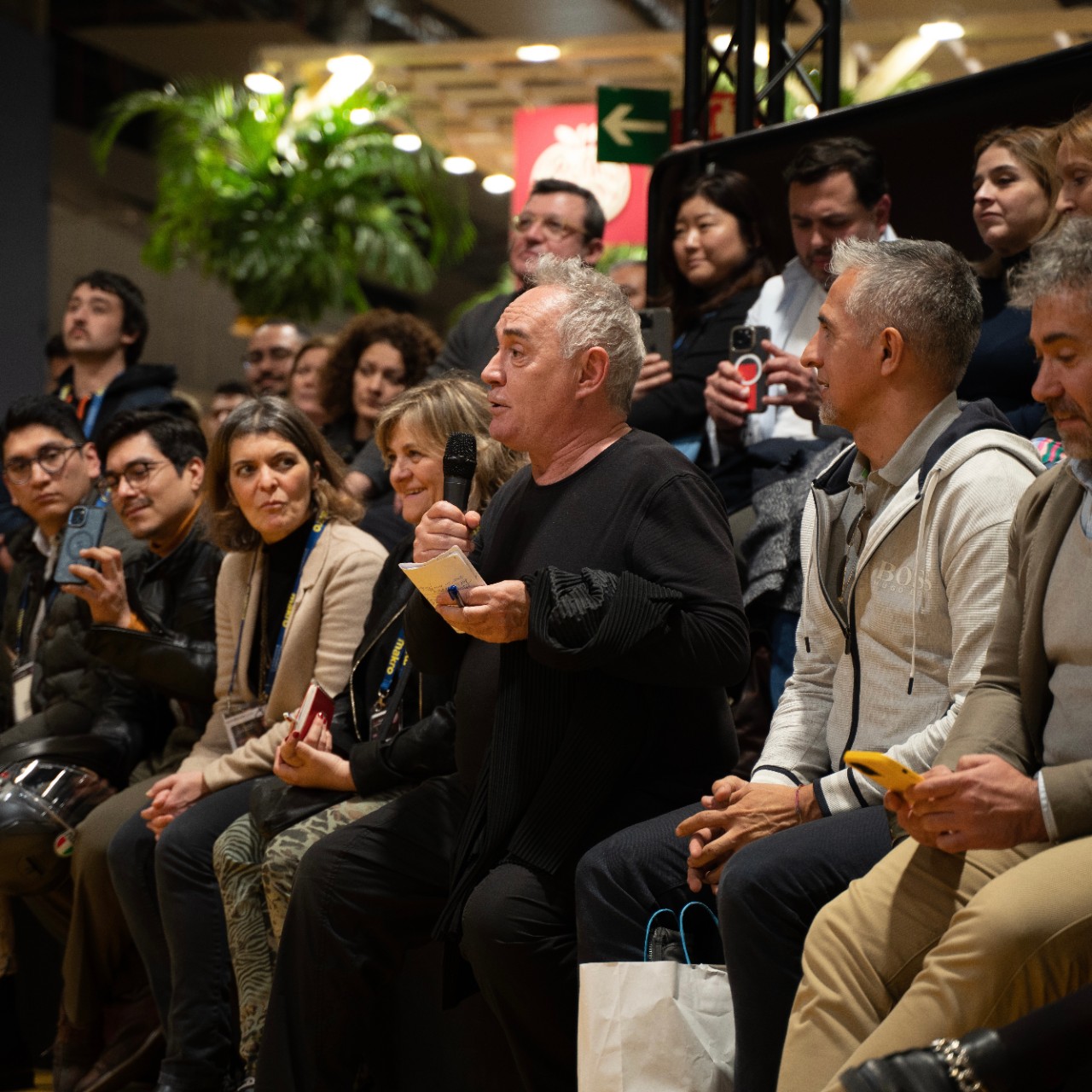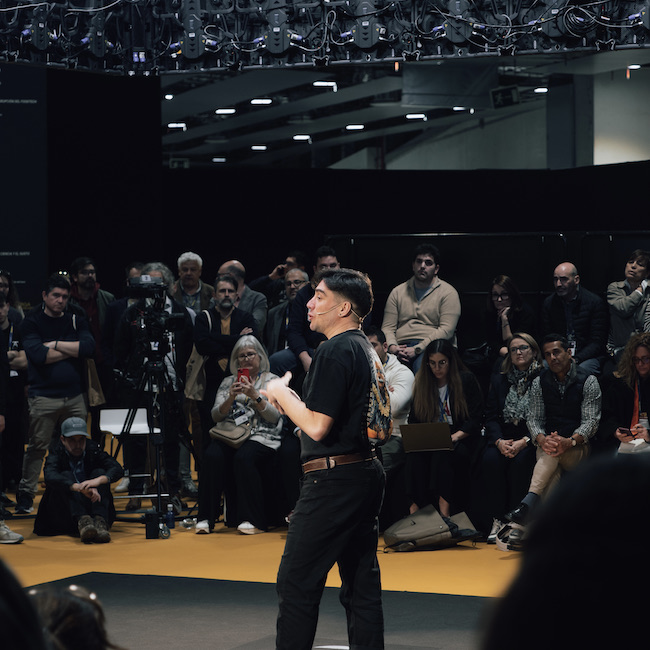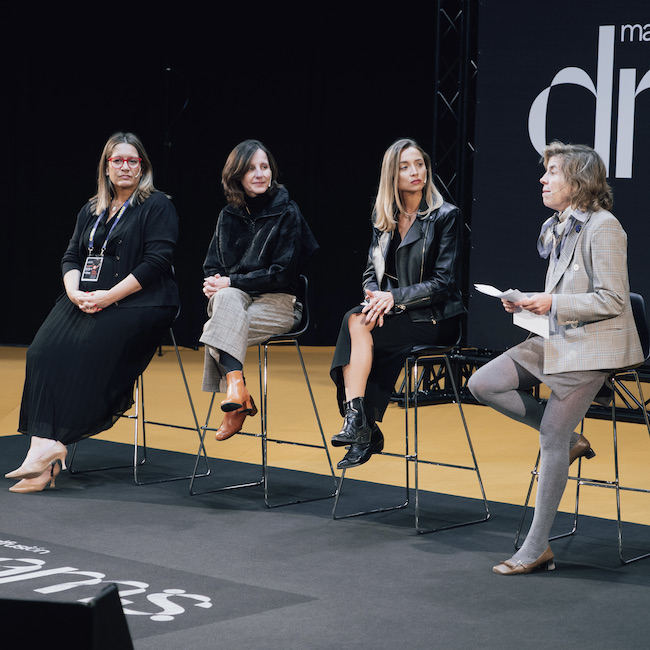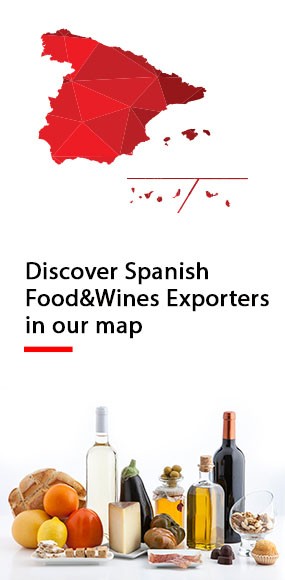.png.transform/rendition-xs/image_image%20(1).png)
Dreams #spainfoodtech: a Look at the Future of Food
The new space at Madrid Fusión Alimentos de España is open for debate, from science and innovation
What are we going to eat in the coming years? What will those foods be like? What role do science and innovation play in shaping the cuisine of the future? Answering these questions (and many others) is the objective of Dreams #spainfoodtech, a new space that debuted at the 22nd edition of Madrid Fusión thanks to Foods & Wine from Spain and the Fundación Alicia.
There's no better proof of the space's success than seeing Ferran Adrià in the audience on the first day, attending the presentations and roundtable discussions and participating just like everyone else, seated with the attendees and an obvious fan of the more intimate format.

On the first day, many valuable and important ideas came to light, such as the emergence of new ingredients and alternative protein sources from the foodtech ecosystem. Among the start-ups that participated in the forum were Poseidona, which works with algae biomass. Climate-smart crops, which will be essential in the years to come, were also discussed. Researchers also participated, with presentations such as the LIKE-A-PRO Project, which seeks to create alternative protein products to facilitate healthy diets for all population groups.
In the afternoon session, Eneko Atxa (chef at Azurmendi, 3 Michelin stars, in Larrabetzu, Biscay) and physicist Eneko Axpe discussed the use of artificial intelligence in gastronomy. They also addressed important issues for the future of the restaurant industry, such as restaurant models in the coming years, and the lack of waitstaff, which is a real problem.

The foodtech ecosystem, the road to future excellence
Second day focused on how foodtech is destined to shape the way we feed ourselves in the future. At the roundtable discussion entitled "Drivers of the foodtech ecosystem in Spain," María Naranjo, director of the food industry at ICEX, met with Bea Jacoste, CEO of KM ZERO Innovation; Mila Valcárcel, co-founder and managing partner at Eatable Adventures; and Estefanía Erro, director of marketing and Innovation at CNTA. "Spain is a powerful player in the foodtech world," was declared during a roundtable during which the speakers assessed the current situation and discussed future challenges.
The next session featured some of the start-ups that are shaking up the Spanish foodtech sector. María Naranjo was accompanied by Miguel Ángel Cubero, general manager and CEO of Ingredalia; Roselyne Chane, general manager of Sanygranl and Mariano Oto, general manager of NuCaps. They were in responsible for reminding the audience that open innovation is a fundamental tool for advancing the sector and recognized the importance of Foods & Wine from Spain as a driver of the Spanish foodtech industry.
A highlight was waiting at the end of the day: the presentation of the 2023 Report on Foodtech in Spain, prepared by Elisa Carbonell, CEO of ICEX. Carbonell presented some of the data, such as the existence of 420 start-ups dedicated to foodtech in Spain, and the stability of investment in the last year. Carbonell also highlighted some features of the "secret sauce" that helps establish the foodtech sector in Spain and allows it to develop such as the large number of hubs, and the direct link with Latin America and the talent those ties bring with it.

Food as medicine
Finally, the last day of Madrid Fusión was focused on the role of food in people's health. The day began with a roundtable discussion entitled "Spain, the healthiest country in the world," a reference to a study with WHO data explaining that Spanish-style eating is the main reason behind the title. During the rest of the day, issues such as cooking for health, growth in food allergies, the microbiome as a factor of well-being, and the relationship between cooking and cancer prevention, among other topics, were addressed.
In this edition of Madrid Fusión, Dreams #spainfoodtech is indubitably a space that looks to the future to address the gastronomic challenges on the horizon. It did so in a way that was dynamic and agile and with a format that rethinks the way in which big names in gastronomy interact.

